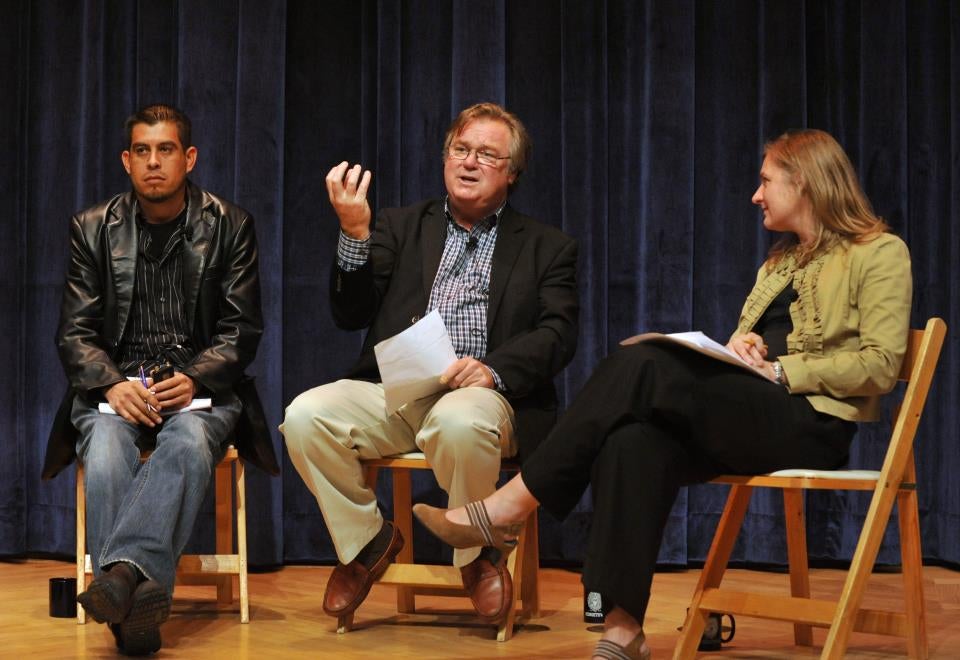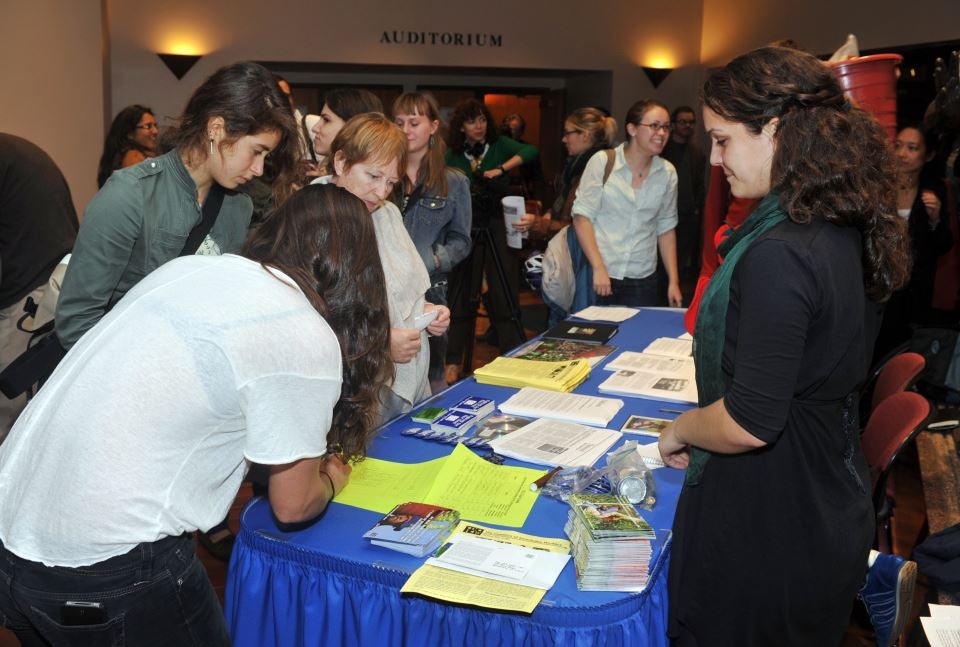KI Hosts Food Justice Event
Posted in Events | Tagged Coalition of Immokalee Workers
On Tuesday, October 4th, the Kalmanovitz Initiative for Labor and the Working Poor continued its “Labor Lab” series by looking at justice–through tomatoes. Jennifer Luff, research director for the initiative, moderated the panel, which included Barry Estabrook, author of Tomatoland, and Greg Asbed and Gerardo Reyes, who represented the Coalition of Immokalee Workers.
“For some people this seems like a bad time to talk about labor,” Luff commented, citing the economic downturn. But for the hundreds of thousands of tomato-pickers working the fields in Florida, the right time to talk about labor is long overdue.
In fact, despite the economic downturn, the Coalition of Immokalee Workers has seen incredible progress in the recent months. “If I had made this talk a year ago,” said Estabrook, “it would have been a real downer—we’re looking at the worst labor abuse in this country, and in the last year something remarkable happened.” After a four-year boycott, the Coalition pressured Taco Bell into a signed agreement.
Estabrook, who started out as a food writer for Gourmet, happened upon the issue of food justice through his search to find more flavorful tomatoes amidst industrial agriculture. A quest that started out as purely culinary took a justice-oriented turn when Estabrook realized he hadn’t a clue who picked his food.
Delving into the food and labor politics of Florida—where the majority of off-season tomatoes are harvested—Estabrook felt “equal parts horror and shame.”
“These are the sweatshops of the field,” he remarked, “where basic labor practices pre-date the New Deal.” Workers suffered from continued exposure to pesticides, were bartered for on country roads, and are still paid by the piece.
Horrified, Estabrook set out to write Tomatoland—titled such because the fields of Florida are like a country of their own. “We’re not outsourcing down in Florida—we’re ‘insourcing.’” said Estabrook. “We’re taking the labor practices of other countries and getting away with them here in the United States.”
Asbed and Reyes, who are involved with the Coalition of Immokalee Workers, are at the forefront of the fight for human rights in the agricultural industry. At the heart of the Florida tomato machine, Immokalee provides much of the labor to the fields, yet many of its workers fall below the poverty line.
But Asbed explained that the coalition’s initial tactic produced limited results; striking against growers was not as effective as they had hoped. “We finally looked up over the fence and asked ourselves where the tomatoes are going, ” Asbed said, pointing to corporations outside the farm that dictate the labor practices.
Companies that didn’t exist in the same capacity 20 or 30 years ago—the WalMarts and McDonalds—have had a distortion effect on the market.
Rather than taking on individual farmers, the Coalition decided to aim their efforts at the last chain in the industry. Reyes, himself a former worker, talked about the major agreement struck with Taco Bell.
“Tomato companies have no brands, but places like Taco Bell do.” While brands wield enormous power, they are also remarkably fragile. A four year boycott with the fast food giant resulted in a signed agreement—the first of its kind in the food industry.
Having worked with the fast food industry and food providers—our very own Aramark even signed an agreement—the Immokalee workers have begun to tackle supermarkets. “Everyone should be held accountable,” Reyes concluded.
The Kalmanovitz Initiative for Labor and the Working Poor will continue its “Labor Lab” throughout November. Though they started off with tomatoes, the labs and lectures will bring together advocates of fair labor from air traffic controllers to Poet Laureate Philip Levine.
-Heather Regen


